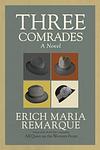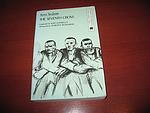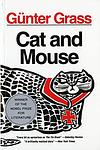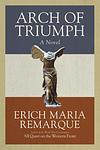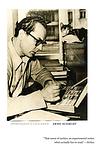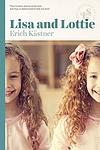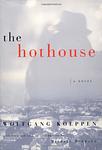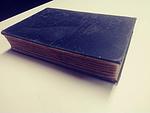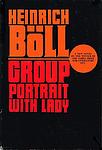The Greatest German "Fiction" Books Since 1900
Click to learn how this list is calculated.
This list represents a comprehensive and trusted collection of the greatest books. Developed through a specialized algorithm, it brings together 290 'best of' book lists to form a definitive guide to the world's most acclaimed books. For those interested in how these books are chosen, additional details can be found on the rankings page.
Genres
Countries
Date Range
Reading Statistics
Click the button below to see how many of these books you've read!
Download
If you're interested in downloading this list as a CSV file for use in a spreadsheet application, you can easily do so by clicking the button below. Please note that to ensure a manageable file size and faster download, the CSV will include details for only the first 500 books.
Download-
26. Narcissus And Goldmund by Hermann Hesse
The novel explores the complex friendship between two diametrically opposed characters: one, a cerebral and ascetic monk dedicated to a life of contemplation and spiritual discipline, and the other, a passionate and sensual artist driven by the pursuit of beauty and worldly experiences. Set against the backdrop of medieval Europe, the story delves into themes of duality, the search for meaning, and the reconciliation of the spiritual with the carnal. As the two men journey through their lives, their intertwined paths lead them to profound insights about the nature of human existence, creativity, and the eternal struggle between the intellect and the senses.
-
27. Demian by Hermann Hesse
The novel follows the life of a young man, Emil Sinclair, from childhood to adulthood, as he navigates the duality of his nature and the societal expectations of his time. He is influenced by a charismatic and intellectual peer, Max Demian, who introduces him to the concept of the world not as a dichotomy of good and evil, but as a unified whole. This leads Sinclair on a journey of self-discovery and spiritual enlightenment, exploring themes of identity, morality, and the subconscious. The narrative is heavily influenced by the philosophies of Carl Jung and the Gnostic tradition.
-
28. Jacob the Liar by Jurek Becker
Set during the Holocaust in a Jewish ghetto in Poland, the novel revolves around a man named Jacob who fabricates the news of the Russian Army's advancement to uplift the spirits of his fellow prisoners. However, as his lies gain traction, they become a beacon of hope for the desperate people in the ghetto, leading to unforeseen consequences. The book explores themes of hope, despair, and the power of words, ultimately questioning the morality of lying for a greater good.
-
29. Three Comrades by Erich Maria Remarque
Set in the interwar period in Germany, the novel revolves around the deep bond of friendship between three World War I veterans struggling to adapt to civilian life amidst the economic and social turmoil of Weimar Republic. The trio copes with their trauma and disillusionment by sticking together and seeking solace in their shared experiences. Their camaraderie is further enriched and complicated by the arrival of a beautiful, spirited woman, who becomes intimately entwined with their lives. As they navigate the challenges of love, loss, and the scars of war, the story poignantly captures the fragility of hope and the enduring spirit of friendship against the backdrop of a society on the brink of monumental change.
-
30. The Seventh Cross by Anna Seghers
"The Seventh Cross" is a gripping tale set in Nazi Germany that revolves around seven men who escape from a concentration camp. The camp commandant erects seven crosses, vowing to hang each escapee on their return. The story primarily follows one escapee, who manages to evade capture and make his way back to his hometown. The narrative explores the psychological terror imposed by the Nazi regime, the resilience of human spirit, and the subtle forms of resistance within the German populace.
-
31. Professor Unrat by Heinrich Mann
The novel is a social critique of bourgeois society in Germany during the Wilhelmine period, as seen through the life of an authoritarian and morally rigid school teacher. The protagonist becomes infatuated with a cabaret dancer, leading him to abandon his duties and societal norms, and eventually descend into madness. The book explores themes of obsession, social class, and the destructive power of repressed desire.
-
32. The Resistible Rise of Arturo Ui by Bertolt Brecht
"The Resistible Rise of Arturo Ui" is a satirical play that uses the rise of a fictional 1930s Chicago mobster, Arturo Ui, to parallel the rise of Adolf Hitler in Nazi Germany. The narrative is a critique of those who allowed Hitler to come to power, emphasizing that his rise was indeed resistible. The play explores themes of power, corruption, manipulation, and the dangers of complacency, showcasing the destructive potential of unchecked ambition and the failure of society to prevent the ascent of dangerous individuals.
-
33. Cat and Mouse by Günter Grass
"Cat and Mouse" is a novel that centers around a group of boys living in Danzig during World War II. The story is narrated by one of the boys, who recounts the life of his friend, whom they call "the great Mahlke", a boy with a large Adam's apple. Mahlke's attempts to prove himself a hero despite his physical oddity, his obsession with a sunken ship, and his eventual expulsion from school and enlistment in the war form the heart of the narrative. The novel explores themes of identity, guilt, memory, and the devastating impact of war on the individual and society.
-
34. Galileo by Bertolt Brecht
This play delves into the life of the renowned Italian scientist, Galileo Galilei, who challenged the church's belief in a geocentric universe. It explores his struggles against the Catholic Church, his recantation, and the consequences of his actions on his life and those around him. The narrative also examines the conflict between science and religion, the ethics of scientific discovery, and the price of truth.
-
35. Arch Of Triumph by Erich Maria Remarque
Set against the backdrop of the looming Second World War in Paris, the narrative follows a German refugee and surgeon who is living without proper documents after escaping from Nazi Germany. Haunted by his past and the horrors he has witnessed, he navigates the dark streets of Paris, performing surgeries in a clandestine practice for other displaced immigrants. Amidst his struggle for survival and identity, he engages in a passionate but tumultuous love affair with an Italian woman, which brings temporary solace but ultimately leads to greater despair. The story is a poignant exploration of exile, loss, and the human desire for connection and meaning in the face of relentless adversity.
-
36. The Egghead Republic by Arno Schmidt
The book is a satirical science fiction novella that takes readers on a journey through a post-apocalyptic world. Set in a future where a catastrophic event has fragmented society, the story follows a journalist as he travels to an artificial island known as the Egghead Republic, a haven for intellectuals and scientists. This enclave is dedicated to preserving knowledge and culture amidst the chaos of the outside world. The narrative is characterized by its linguistic inventiveness and complex wordplay, as it explores themes of isolation, the role of intellectuals in society, and the nature of human civilization through the lens of a dystopian future.
-
37. Scenes From The Life Of A Faun by Arno Schmidt
"Scenes from the Life of a Faun" is a complex and experimental novel that delves into the psyche of a German civil servant living in the aftermath of World War II. The protagonist, burdened by the guilt and trauma of the war, retreats into a fantasy world where he imagines himself as a mythological faun. Through a fragmented narrative structure and a dense web of literary and historical references, the book explores themes of memory, responsibility, and the struggle to find meaning in a shattered world. The protagonist's internal journey is a reflection on the moral ambiguities of his time, as he grapples with his complicity in the horrors of the past while seeking redemption in his personal mythology.
-
38. Billiards at Half-Past Nine by Heinrich Böll
The novel follows the story of the Faehmel family, spanning three generations, in post-war Germany, focusing on the impact of war and the struggle with the country's Nazi past. The narrative centers around Robert Faehmel, an architect who refuses to build anything after World War II, his father, a World War I veteran, and his son, who is trying to make sense of his family's past. The story is told non-linearly, with the characters' memories, dreams, and perceptions revealing the devastating effects of the two World Wars on the family and the country.
-
39. Momo by Michael Ende
"Momo" by Michael Ende is a captivating tale about a young orphan girl named Momo who possesses an extraordinary ability to listen and understand people. Set in a town plagued by time thieves, Momo's unique gift becomes crucial as she embarks on a quest to save the community from losing their most precious possession: time. With the help of her loyal friends, Momo must confront the enigmatic Men in Grey and their sinister plan to rob people of their time, teaching readers the importance of cherishing the present moment and the power of human connection.
-
40. The Fool In Christ: Emmanuel Quint by Gerhart Hauptmann
This novel delves into the life of Emmanuel Quint, a man who, amidst the turmoil of early 20th-century Germany, believes himself to be a modern-day messiah. His profound spiritual convictions and miraculous healings draw a fervent following, yet also attract scorn and skepticism from society and religious authorities. As he embarks on a tumultuous journey of faith, Quint's radical teachings and the controversies surrounding his actions challenge the established norms and beliefs of the time, leading to profound reflections on spirituality, morality, and the nature of divinity. The narrative explores the fine line between madness and sanctity, ultimately questioning the essence of truth and redemption in a world resistant to change.
-
41. The Clown by Heinrich Böll
Set in post-World War II Germany, the novel follows the life of a professional clown who is in a personal crisis after being left by his long-term girlfriend. The protagonist, who is unable to find work due to his political views, spends a day reflecting on his life, his broken relationship, and the harsh realities of the society around him. The narrative offers a stark critique of Catholicism and the economic miracle in post-war Germany.
-
42. Lottie And Lisa by Erich Kästner
The book tells the charming story of identical twin sisters separated at birth who meet unexpectedly at a summer camp. Initially unaware of their relationship, the girls take an instant dislike to each other due to their identical appearances, but as they get to know one another, they discover their shared parentage. They decide to switch places, with each going to live with the parent the other has grown up with, in an attempt to reunite their estranged family. Through a series of heartwarming and humorous events, the twins work together to bring their mother and father back together, exploring themes of family, identity, and the bond between siblings.
-
43. Stories Of Three Decades by Thomas Mann
"Stories of Three Decades" is a collection of short stories that spans the breadth of a renowned writer's career, offering a diverse range of narratives that reflect the social, psychological, and philosophical preoccupations of its era. The anthology showcases the author's mastery in exploring the human condition, with each story delving into themes of love, death, art, and the complexities of the modern world. Through a blend of realism and symbolism, the collection captures the tumultuous changes of the early 20th century and the timeless aspects of human experience, cementing the author's legacy as a pivotal figure in literary history.
-
44. Halftime by Martin Walser
"Halftime" is a thought-provoking novel that explores the life of a successful businessman who, in the midst of his midlife crisis, begins to question the meaning and purpose of his life. As he grapples with his own mortality and the emptiness of his achievements, he embarks on a journey of self-discovery, seeking to reconcile his past and present and find a new path forward. The book delves deep into the human psyche, offering a profound exploration of existential crises, personal transformation, and the quest for authenticity.
-
45. The Glass Bees by Ernst Jünger
"The Glass Bees" is a novel set in a future dystopian society, where technology has advanced to the point where robotic bees are being used for honey production. The story follows a former cavalryman who, desperate for employment, accepts a job from a powerful technocrat to test out these mechanical bees. As the protagonist gets more involved in the technocrat's world, he begins to question the morality and implications of such advancements, leading to a deep exploration of the intersection between technology and nature, and the potential consequences of unchecked technological progress.
-
46. Death in Rome by Wolfgang Koeppen
"Death in Rome" is a post-World War II novel that explores the lives of a German family, their friends, and associates during a reunion in Rome. Each character is representative of a different aspect of German society, and their interactions and experiences in the city serve as a commentary on the nation's struggle to come to terms with its recent past. The book also explores the themes of guilt, denial, and the lingering effects of war.
-
47. The Hothouse by Wolfgang Koeppen
"The Hothouse" is a post-World War II novel that provides a critique of German society through the eyes of a disillusioned civil servant. The protagonist, struggling with the moral and political complexities of the newly formed Federal Republic of Germany, is caught in a web of bureaucracy, corruption, and personal dilemmas. The narrative, filled with vivid and darkly humorous imagery, offers a stark depiction of the political climate and social unrest of post-war Germany.
-
48. Transit by Anna Seghers
A German man escapes from a Nazi concentration camp during World War II and finds himself stuck in Marseille, France, where he assumes the identity of a deceased author to secure a transit visa. As he navigates the bureaucratic maze of the immigration process, he becomes entangled in the lives of the refugees around him, including a desperate woman searching for her missing husband, the very man he's impersonating. The novel explores themes of identity, displacement, and the human struggle for freedom.
-
49. The Case of Sergeant Grischa by Arnold Zweig
The book tells the story of Sergeant Grischa, a Russian POW who escapes from a German prison camp during World War I. After assuming the identity of a dead comrade to evade capture, he is eventually caught and sentenced to death for desertion. Despite several attempts by various individuals to save him, bureaucratic and military rigidity prevent his exoneration. The novel explores the themes of justice, humanity, and the absurdity of war.
-
50. Group Portrait with Lady by Heinrich Böll
This novel delves into the life of Leni Pfeiffer, a resilient woman surviving in post-World War II Germany. Through the eyes of an unnamed narrator, the story unravels Leni's life, her relationships, and the socio-political climate of the time. The narrative is presented as a group portrait, with each chapter focusing on different characters who have been part of Leni's life, highlighting the hardships and resilience of everyday people in the aftermath of war.
Reading Statistics
Click the button below to see how many of these books you've read!
Download
If you're interested in downloading this list as a CSV file for use in a spreadsheet application, you can easily do so by clicking the button below. Please note that to ensure a manageable file size and faster download, the CSV will include details for only the first 500 books.
Download


